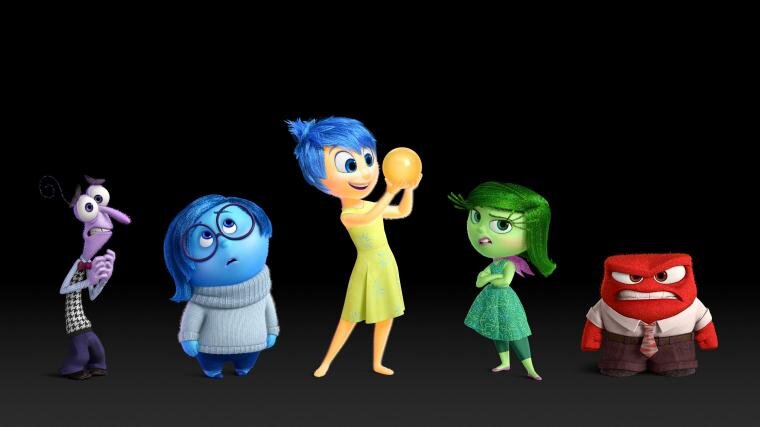What does being fearless actually mean?
Fearless. It’s a simple word with a not-quite-simple definition. “Lacking fear” isn’t even possible—it’s long been identified by psychologists as one of our universal, basic emotions.
So what is fearlessness in practical terms—and why is it something you should aspire to?
Inside Out got it right—our buddy Fear is a core emotion. (Credit: Pixar/Disney)
Let’s start here. Think about the last time you were afraid. Try to recall the moment. Focus on the specifics.
Can you remember exactly what you were worried would happen? Probably not.
Can you remember how it felt? Absolutely. The rush of adrenaline, quickened breath, queasy stomach. Fear is visceral.
We don’t like hanging out in fearful moments of the non-horror movie variety. They don’t feel good. So we push them away, hiding them in the darkest recesses of our minds.
But this is where fear gets its power from—the shadows. They loom large and menacing on the edges of the subconscious. We’re fuzzy on what exactly is there, but we know it’s bad. We avoid it at all costs.
So maybe being fearless doesn’t have to mean not having fears. Maybe it can mean having the courage to pull your fears out from the shadows and look at them in the light of day.
Who wouldn’t be afraid with this guy living rent-free in their brain?
Make no mistake: fearlessness is not recklessness. It’s the opposite—the rigorous, deliberate assessment of the risks associated with your insecurities, doubts, and anxieties.
Here’s an example. Let’s say you want a promotion, but you’re afraid to ask for one. Whenever you think about it, it’s like you ate a big bowl of yuck—a soup loaded with Imposter Syndrome, Not Being Good Enough, and just a sprinkle of Termination Paranoia. You want nothing to do with those feelings. So you sit quietly while someone else gets promoted ahead of you. Again.
But what happens when we unpack those fears? Do they stand up under closer examination?
Are you actually going to get fired for asking for a promotion? Almost certainly not. Are you really not performing well enough to warrant a promotion? Your performance review says differently. What’s the real worst-case scenario? You don’t get what you want.
Done right, acting with true fearlessness can actually create win-win situations. Maybe you get the promotion you’re after. Hurray! Maybe you find out what you need to work on to take the next step. That’s an actionable opportunity for growth. Or maybe you find out you don’t have a future at your organization. Okay, that… sucks. But it also means you can look for something new and better with no regrets.
When you’re fearless, you know you’ll be okay—no matter what the outcome is.
And isn’t that what you want for yourself as a leader? To be your authentic self, to make the gutsy call, to do what you think is right, and—criticism be damned—know you’ll be okay?
That’s the power of fearlessness.


